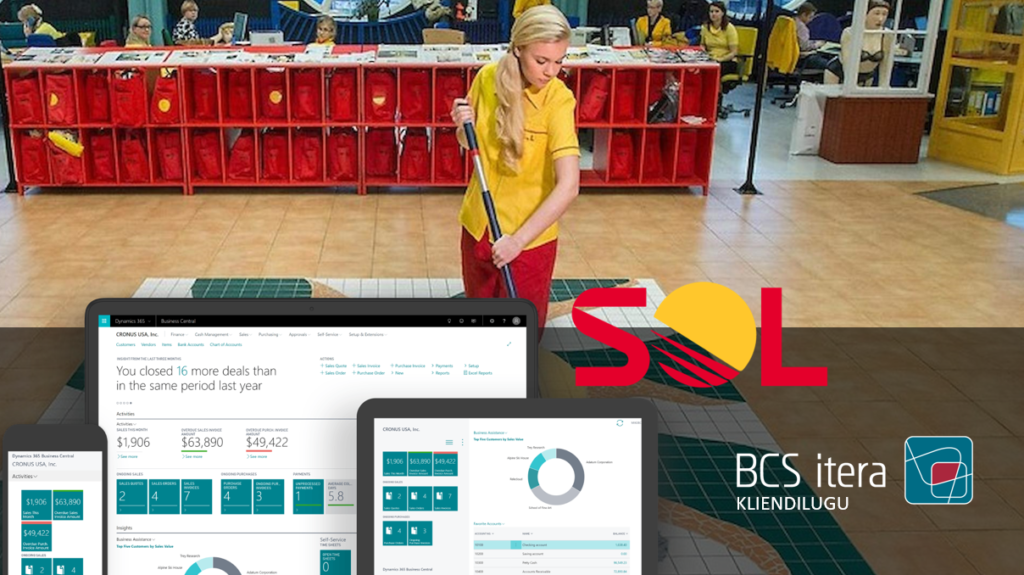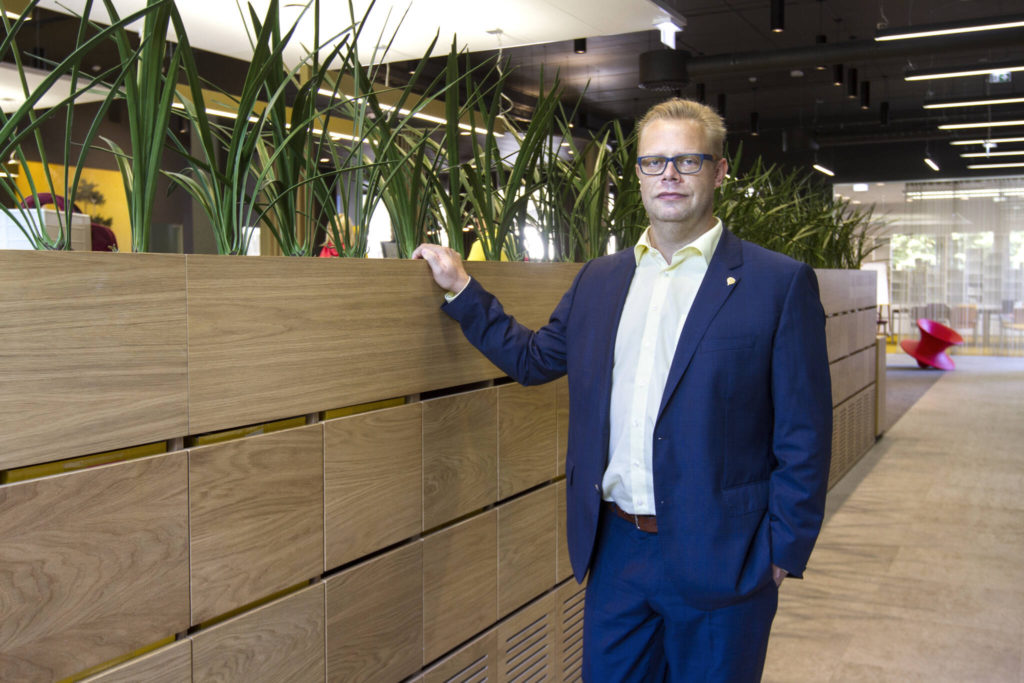Cleaning Company: A Masterclass in Management
SOL Baltics, the largest property maintenance company in the region, has risen to the top of the Baltic market by focusing on its people and company culture. With over 2,000 employees, the time had come to replace Excel spreadsheets with modern Business Central business software.
“When I read “No Rules Rules” about Netflix, I felt like their management was based on SOL’s model,” says Rinel Pius, CEO of SOL Baltics. “Both companies share a very similar culture – a culture of freedom and responsibility!”
SOL Baltics grew out of Lindström, one of Finland’s oldest family businesses. In 1991, Liisa Joronen, the granddaughter of the company’s founder, took over the cleaning services division. She outlined the management principles she valued in her 1993 doctoral thesis.
These and other “free-range” principles have helped the Finnish company expand into Scandinavia and the Baltics. They have also helped the company navigate the COVID-19 pandemic. Last year’s profits for SOL’s Baltic unit were the highest ever. However, it would be wrong to say that the pandemic did not hit the company hard. Viking Line and Eckerö ferries, where SOL provided cleaning services, have been docked for almost a year, and hotels are closed or operating at reduced capacity. Many smaller clients have not reopened their businesses. The COVID-19 related reorganizations directly affected about 500 SOL employees. Some had to be laid off.
The strong financial results are the result of five years of focused effort. It sounds simple, but it all began with hiring smart managers. “SOL’s management philosophy is based on independence, decision-making, and accountability. Employees are given a great deal of freedom. There is no obligation to be in the office; you can work from Sweden if everything is in order.” When the office had to be closed overnight last spring due to the pandemic, it was business as usual – the company was already accustomed to this way of working.
SOL Baltics’ CEO illustrates the company culture with a simple example: “If the coffee machine is broken in the office, we don’t wait for someone to fix it. At SOL, whoever notices it first takes care of it.”
And those who are angry or gloomy will not be hired. “We spend a third of our lives at work; it should be fun with colleagues!” says Pius.
A Unified Standard Across the Baltics
Cost levels and service quality are crucial. The company must generate 1.5 million euros in salary each month. Therefore, SOL focuses on service levels and cost reduction.
The three separate Baltic units have now been merged under unified management. The final step in this process took place in February of this year, when YPV, one of Lithuania’s leading technical maintenance companies, began operating under the SOL name and brand. The companies had spent several years getting to know each other.
The merger of SOL’s Baltic units was beneficial due to economies of scale. Whereas each country used to purchase everything separately (from toilet paper to cars), joint procurement now ensures much better prices. Above all, it is more convenient to operate this way. The market is small, even across the Baltics, and there is no need to fight on three separate fronts.
Unified management also ensures consistent service levels. “The cleaning service in Estonia is world-class! If there were a world championship in this field, we would definitely be in the top three!” says Pius. This is certainly true. SOL’s cleaning service has become an undeniable competitive advantage for one hotel! Bob W Hotel in Tallinn’s Telliskivi district uses the “Ridiculously Clean” standard, which involves 63 steps of cleaning and disinfection. The room is then sealed until the guest arrives.
As a unified company, SOL can now implement the same requirements, processes, and employee training in Latvia and Lithuania as in Estonia.
Cleaning Company: A Masterclass in Management
The cleaning service sector is characterized by extremely high staff turnover. “It’s ingrained in our industry. No one says in kindergarten that they want to be a cleaner!” Many people take these jobs temporarily or quickly realize that it is not for them. On difficult days in Estonia, SOL hires an average of three people and conducts at least twenty job interviews per day. The company employs professional recruiters. The COVID-19 pandemic has not improved the labor supply.
“Our middle managers are better than the top managers at most Estonian companies,” claims Pius. “Each foreman has an average of 45 cleaners in their team, which is three times the average number of employees at an Estonian company. Each foreman has an average of 20 clients! The foremen plan their team’s budget, monitor quality, and communicate with clients, both good and bad. “You have to be an exceptional manager to handle such a large team when the average income is only 39% of the national average!”
The foremen, in turn, report to service managers, with about ten foremen in each team. With a 3–4 million euro portfolio, a service manager is the equivalent of a CEO at a large Estonian company.
Given the number of employees – SOL has 2,300 employees in the Baltics – top managers cannot meet individually with each employee for an hour or two each year. Therefore, larger goals are traditionally set in workshops. For example, ten goals are set for the following year. The team discusses why and how to achieve each goal. Life often intervenes, and some goals are removed or added to the list.
Streamlining Processes
On January 1 of this year, SOL Baltics began gradually implementing Business Central business software. The rollout began in Estonia, with Latvia and Lithuania to follow. Previously, ERP was not a priority. The company focused on “real things.” They visited clients and communicated as needed.
“I won’t deny that our electronic systems were rather rudimentary,” says Pius. “We used unintegrated, outdated accounting and HR software. We had no recruitment program, and our payroll program was custom-built. We used dozens of Excel spreadsheets for occupational health and safety accounting! If you needed a report immediately, “immediately” meant the day after tomorrow at the earliest.”
However, the company has grown significantly. When Rinel Pius took over seven years ago, annual turnover was 16 million euros. This year, turnover is projected to exceed 35 million euros. A few years ago, the company decided to thoroughly address its business software.
On February 1 of last year, SOL chose Business Central and BCS Itera. “We chose a partner, not just a program. We needed a company that understands us and communicates well,” says Pius. “BCS Itera was far superior to the competition. They immersed themselves in our operations and provided a realistic picture of the challenges of implementing the software and the role of our employees.”
Pius believes that the biggest innovation is not the new software itself, but the changes to many processes. “Processes evolve over time without being analyzed. For example, the “Day 1 Sheet” for each employee used to be printed three or four times and handled by three or four people! That’s history now. It’s done only once and updated continuously. We reviewed all company processes, from accounting to service, payroll, invoicing, and mass mailing,” says the head of SOL Baltics.
New Software, New Pipeline
The goal of the Business Central implementation was to use as many standard solutions as possible. However, this was not always feasible.
For SOL, payroll is the most critical issue. “If we forget a client, it’s a financial loss. But if incorrect data enters the payroll program and employees are paid incorrectly, it’s a much bigger disaster. People’s incomes are low, and every euro counts. Paying salaries correctly and on time, or even a little early, is a sacred goal for SOL,” says Pius. “We simply could not use a standard solution here. But we’ve achieved something quite remarkable.”
The payroll accounting workshop during the implementation process was a real eye-opener. The company had not previously realized the enormous amount of work involved in calculating salaries, especially given that thousands of employees work with different workloads, from 10 to 100%. Everyone gained a newfound respect for the payroll department.
Overall, the new software covers all company operations from start to finish, with all processes integrated into a single system:
- Sales: Contacts, offers, contracts.
- Products: Toilet paper, hand towels, soap, disinfectants, etc.
- Billing: Clients receive a single e-invoice with two amounts: a monthly fee and the cost of consumed products. The issue of multiple invoice templates has also been resolved. Even for a single client, different locations previously had vastly different invoice templates. SOL’s accountants had to process these invoices manually, which was time-consuming and prone to errors. Now, the format has been agreed upon with the client’s finance and IT departments, and everything is automatic.
- HR: Employee onboarding (regardless of workload), employment contracts, first paycheck after one month, and training are all visible in the HR module.
- Management Reports: Management receives real-time, visualized reports via Power BI. These reports are pre-defined and no longer need to be created.
Rinel Pius says that they have not regretted their choice of IT partner. Deadlines have been extended, partly due to COVID-19 and the need to ensure clarity. “Our IT partner’s consultant is incredibly experienced!” she says.
SOL’s Lessons Learned in ERP Implementation
-
Motivational Meetings: To keep employees motivated, meetings should not only be held at the beginning of IT development, but regularly throughout the process. The purpose of these meetings is to inform employees of the progress made and to maintain a positive attitude by emphasizing that the new system is coming soon. While we notified our employees of the software launch date and the training schedule, it is important to regularly remind them of the benefits that the new software provides. As a manager, you also need to motivate yourself in this way: it is difficult, but it will soon get better.
-
User Rights: One of the first workshops should have focused on user rights (who can view, modify, and confirm what), but we unfortunately left it to the very end. Addressing this earlier would have made the process smoother and more efficient.
-
Critical Processes: Workshops should start with the most critical processes. We unfortunately addressed our most critical area – payroll and HR management (which required a custom solution) – last.
-
IT Project Manager: We strongly recommend hiring an IT project manager within the company who is familiar with the processes. This was key to our success. When all department heads and workshop participants describe their core processes to the IT partner, they often only describe their own part. The IT project manager is an important link who ensures a comprehensive understanding of all processes and keeps the project aligned with the overall business objectives.
BACKGROUND OF THE BUSINESS SOFTWARE
BCS Itera AS implemented Microsoft Dynamics 365 Business Central at SOL Baltic, covering the majority of the company’s business processes. HRM4Baltics, a specialized module within the same platform, is used for payroll and HR management. Custom solutions were developed for facility management, job execution and planning, invoicing, and bulk billing.


